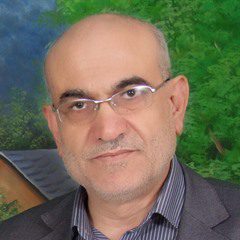Was the opposition demonstration in Cairo huge on Sunday? Yes, it was; but so was the crowd supporting the president, although scanning the media you would be hard-pressed to know this.
As such, it is worth looking at the conflict in Egypt from the other side, so to speak. Imagine, for argument’s sake, that Hamdeen Sabahi, Mohamed ElBaradei or Amr Moussa was elected president last year; and I stress, elected president, and Morsi supporters turned out in Tahrir Square chanting “leave”. Would they be tolerated with paternalistic respect or regarded as obscurantist forces wanting to overturn democracy and the legitimacy of the ballot boxes?
President Morsi has spoken of the opposition demonstrators with respect and called for dialogue. He sought reassurances from the minister of defence that the people on the streets would be safe. He did this despite knowing that a large proportion of the crowd gathered in the city squares was remnants of the ousted Mubarak regime and Coptic Christians, whose church has taken an unprecedented stand against an Egyptian president.
No one from the government said that these forces took to the streets for sectarian reasons that have no relation to the success or failure of the president, for the simple reason that they are citizens entitled to protest like everyone else. Moreover, they are likely to be anti-Morsi no matter what the president might say or do, just as the Alawites in Turkey, for example, are anti-Erdogan despite the significant gains they have made during his time in office.
Group identities are coming to the fore in this confrontation. When the Coptic Church, which supported Hosni Mubarak until the every last moment, calls on its members to participate in demonstrations against Morsi, it emphasises this point. This has happened despite the fact that the article in the Constitution covering Coptic rights was given to the representatives of the church to formulate. They wrote it and approved it, then withdrew when others did from the Constitution Committee after having agreed to most of its articles for partisan reasons that have nothing to do with the texts and have everything to do with divisive politics.
That being so, we need to ask how many of those in the crowd on Sunday were in the crowds on January 25, 2011 which resulted in the overthrow of the former regime; perhaps 20 per cent, at best? And they are led by the “One Man Band” parties of ElBaradei, Moussa, Sabahi and Aboul Fotouh.
Everyone noticed how the Mubarak remnants dominated the square, while many of the young men from the original revolution (as well as the young women, after being harassed) left in protest at having to share the platform with Mubarak supporters.
On top of all of this is the simple fact that no president, regardless of his party or political alignment, could possibly have fixed Egypt’s many economic and social woes in just one year. The opposition leadership know this as well as anybody but they are exploiting the situation cynically for their own political gain. Elect a president we don’t like? No problem, we’ll stage a coup. This is unacceptable.
We must move from revolutionary legitimacy to constitutional legality. This is exactly what Morsi is calling for, with the election of a new parliament in order for it to form a new government to replace the government which is the butt of the people’s anger.
When Sabahi admitted, in an interview with Al-Hayat newspaper, that Morsi had offered him the post of vice-president but he rejected it, while others refused to cooperate or participate in the government, it is clear that they have been wishing for, and working towards, Morsi’s failure from day one.
The final picture isn’t yet clear. The people are still hoping for a military coup, which Sabahi called for explicitly yesterday, to “rescue” them, but have they considered whether or not the security agencies are with them or against them? Many have worked against the elected president, so for whose objectives are they working for now?
The essence of the revolution was to put in place a system of government chosen by the people in a free and fair election with constitutional legitimacy. The process isn’t yet complete but the people are on the streets to ditch it for an unknown, as yet, alternative. They should be very careful what they wish for. It may not be the “democratic alternative” that they think.
The author is a Jordanian writer. This article is a translation of the Arabic which first appeared in Ad Dustour Newspaper on 2 July, 2013
The views expressed in this article belong to the author and do not necessarily reflect the editorial policy of Middle East Monitor.








